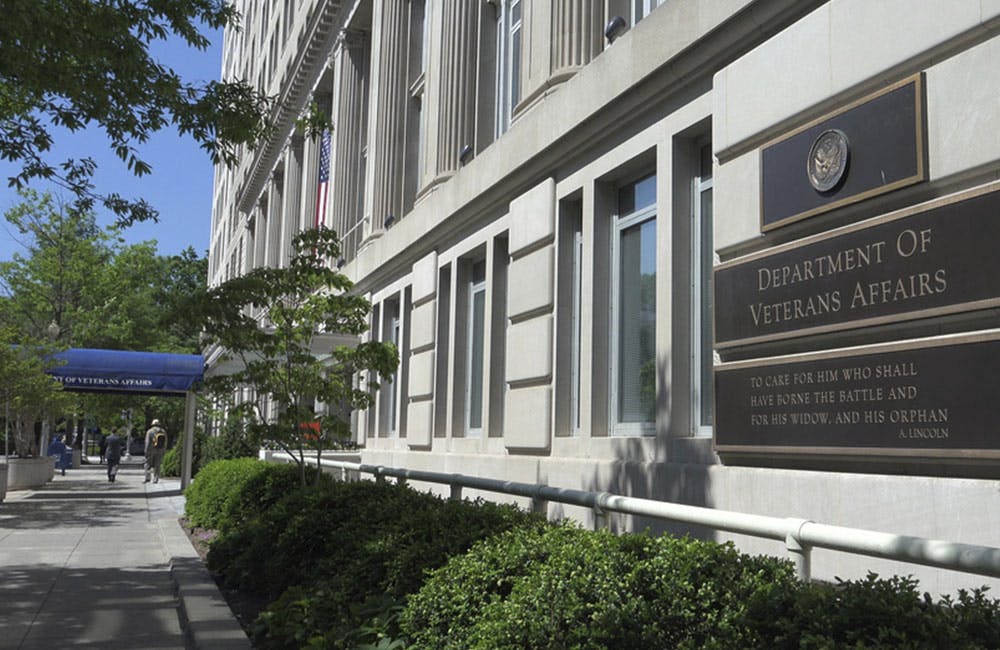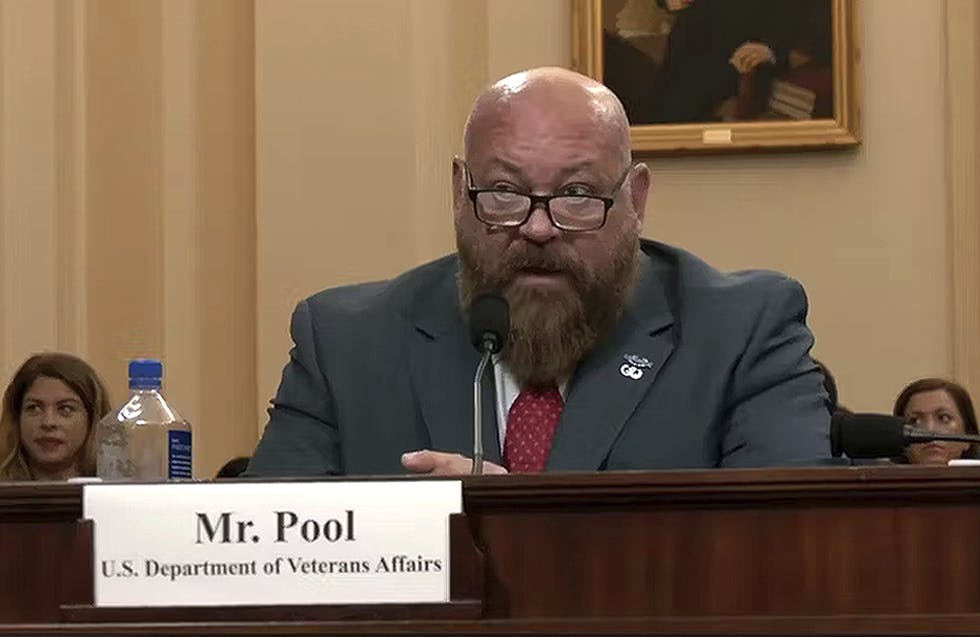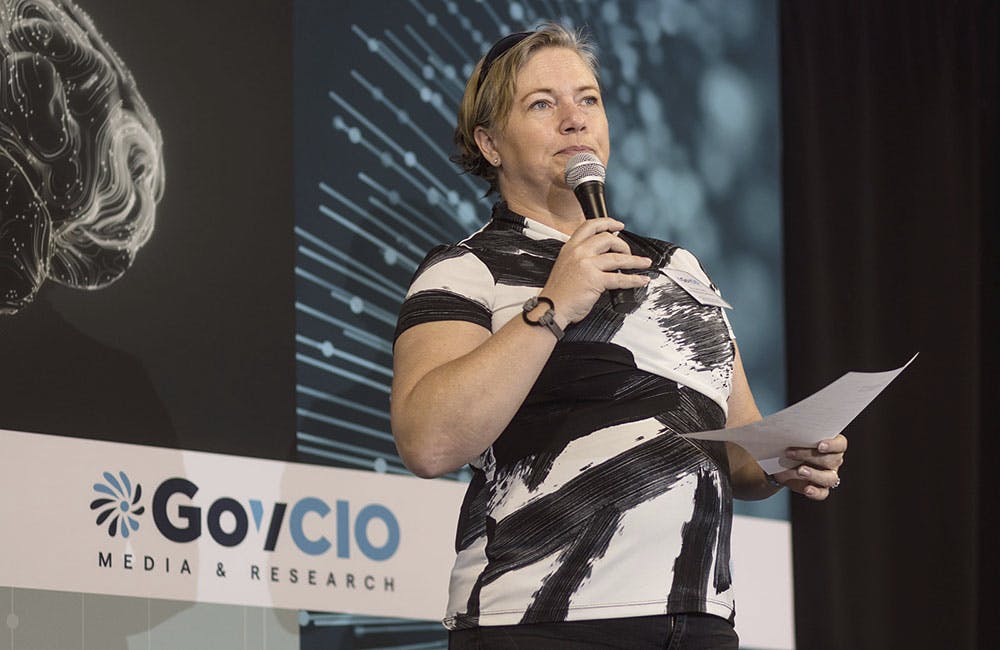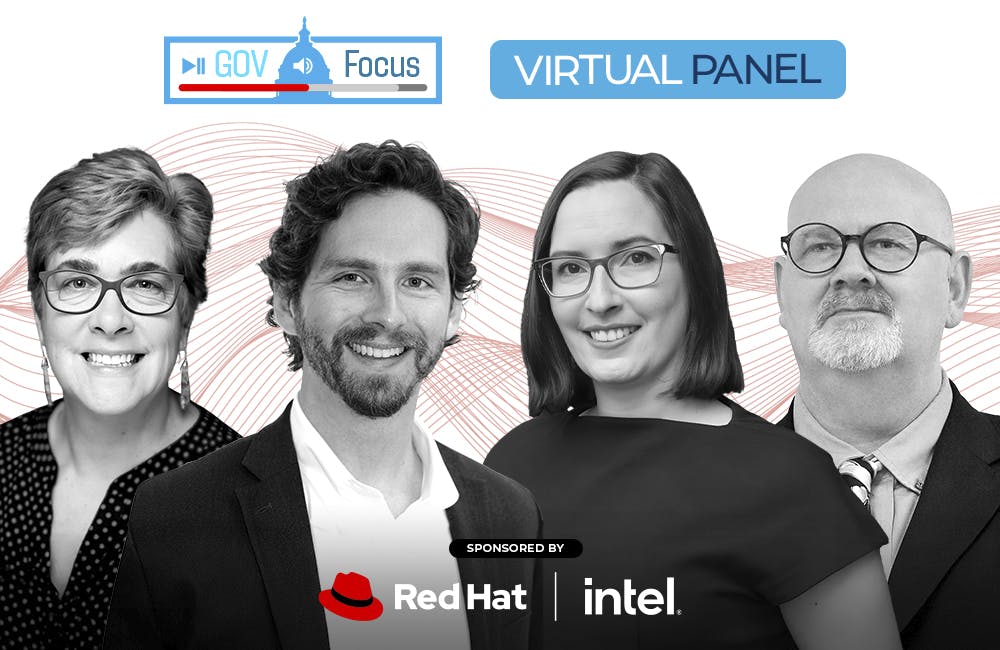VA Tech Sprints Eye AI to Tackle Clinician Burnout
Agency officials said AI adoption at the agency can reverberate throughout the health care sector nationally.

The Department of Veterans Affairs has taken another step to confront the critical problem of clinician burnout this week with its latest three-month tech sprint dedicated to addressing provider burnout.
The agency selected 10 winners from industry participants who pitched solutions across two tracks to address slowdowns in document processing and note-taking. The initial pool comprised 152 teams.
The tech sprints addressed two issues centered around provider burnout. The first track called for companies to bring ambient AI-enabled solutions that could generate transcripts of recorded patient encounters for clinicians, limiting the amount of time that clinicians spend typing notes at a terminal.
The second track requested companies use AI to ingest records from community providers and then synthesize them into key points that could be shared with VA providers.
“One of the problems I’ve heard, actually quite consistently, is [veterans’] sense that our clinicians are burning out sometimes. They’re often overworked with a patient load and are often spending a lot of time behind terminals,” Dr. Shereef Elnahal, undersecretary for health at VHA, told GovCIO Media & Research. “As a result of what we’ve tried to do to reduce burnout, that’s gotten a little bit better over time, but we wanted to accelerate that progress. One of the really promising things about generative AI is that it can help human beings reduce rote tasks by automating them.”
Elnahal said that the winning pilots will be conducted quickly, with the goal of identifying which would be best suited to the VA’s needs. He said that if solutions prove successful, VA’s contracting partners will work with the winners to scale and distribute them throughout the VA medical system.
“We want to pilot fast and learn fast. We’re talking about an order of months, certainly not years, when it comes to the pilot,” Elnahal said. “We have to determine if there is a partner that ultimately meets the need that we have for veterans, it’s the most important step that we’re going to be assessing with the pilots, and then we’ll be at the hip with our legal and contracting partners in the agency to determine how we can accelerate a better partnership.”
Charles Worthington, chief technology officer and chief AI officer at VA, told GovCIO Media & Research that the tech sprints are part of a larger strategy within the agency to prepare the workforce to adopt AI.
“To adopt really any technology, you have to have the workforce brought along for the ride. We’re really thinking a lot about how we can equip our people to understand what these tools can do and how to use them and also what they can’t do,” Worthington said. “I think that’s been a big focus of our AI operations. We have basically four work streams in our AI group, and one of them is around getting our workforce ready to use these tools.”
Worthington said the agency’s larger AI strategy is centered around building a framework to assess and monitor AI use in trustworthy ways and explore how AI can help the agency deliver its mission better.
VA Assistant Undersecretary for Health for Discovery, Education and Affiliate Networks Dr. Carolyn Clancy said the VA’s outsized role in the health care industry will have an impact on how AI is adopted throughout the public and private sectors.
“As the nation’s largest integrated health care system and the training ground for the largest number of doctors and nurses in the country, VA innovations and AI will have a significant impact on how AI is adopted by the entire industry,” Clancy said. “At the same time, we know that any technology used in veterans health care must be safe, fair and unbiased. Preserving the trust of our veterans while integrating these solutions is absolutely paramount.”
Clancy told GovCIO Media & Research that the tech sprints can serve as a marker for industry to understand the VA’s specific needs for developing AI tools and improve contracting between the public and private sectors on the emerging technology.
“The vocabulary is not that mature. I can write a contract for you to respond to and we’ll be using the same words, but we may not mean the same thing. This tech sprint gets us much closer to ‘we’re meaning the same thing’ and seeing it in action,” Clancy said.
Elnahal said the tech sprints will allow for “an apples-to-apples comparison” between the solutions and demonstrate transparently to veterans and clinicians that the technology can work in making their lives easier.
“All in all, we’re focused on things that save time for our clinicians and do what they love, which is to talk to our veterans and to practice medicine, not sit behind a terminal chipping away at this or that functionality. We want our clinicians to be focused on the patient and on the veteran,” Elnahal said.
This is a carousel with manually rotating slides. Use Next and Previous buttons to navigate or jump to a slide with the slide dots
-

White House Science Chief: US-Driven AI Sets Global Standards
Michael Kratsios outlined how American AI technology on the global stage will help standardize the tech and counter China’s influence.
5m read -

Modernizing Critical Infrastructure in the Face of Global Threats
Officials are expanding the latest strategies in boosting defense infrastructure, including securing satellite communications, upgrading enterprise-wide technology, optimizing data management.
20m watch -

Trump AI Orders Call for Speed in Building Infrastructure
The directives call for expanding AI infrastructure, streamlining federal permitting and promoting AI exports.
4m read -

DOD Accelerates Software Modernization with Agile DevSecOps Push
The Pentagon's software implementation plan tackles cultural hurdles and integrates security early to deliver critical capabilities faster.
6m read -

White House Unveils AI Action Plan to Secure Global Dominance
The strategy outlines steps to accelerate private sector innovation, build critical infrastructure and advance U.S. leadership in AI policy and security.
3m read -

VA's Platform One Powers Rapid Innovation to Bolster Digital Services
VA's Platform One accelerates software development timelines from weeks to hours, ultimately enhancing digital services for veterans.
5m read -

Doing More with Less is Muscle Memory for IRS, Former Deputy CIO Says
Darnita Trower discusses her experience, the legacy she’s left behind and how she pushed the IRS to modernize itself,
20m watch -

Opinion: Original Intelligence Is the Missing Piece for AI Transformation
Limitations of AI agents and development drive growing needs for workforce development and "original intelligence."
3m read -

VA CIO Targets Modern IT and Smarter Workforce Alignment
Agency leaders told lawmakers they are focused on trimming legacy systems and restructuring its workforce to streamline operations.
3m read -

Pentagon's $200M AI Contracts Signal Broader Effort to Transform Talent
The Army is leveraging Silicon Valley, reservist programs and new hiring strategies to integrate critical digital skills in its ranks.
5m read -

AI Foundations Driving Government Efficiency
Federal agencies are modernizing systems, managing risk and building trust to scale responsible AI and drive government efficiency.
43m watch -

Inside DOD’s Push to Grow the Cyber Workforce Through Academia
Diba Hadi gives her first interview since becoming principal director of the DOD’s Cyber Academic Engagement Office.
15m listen
















